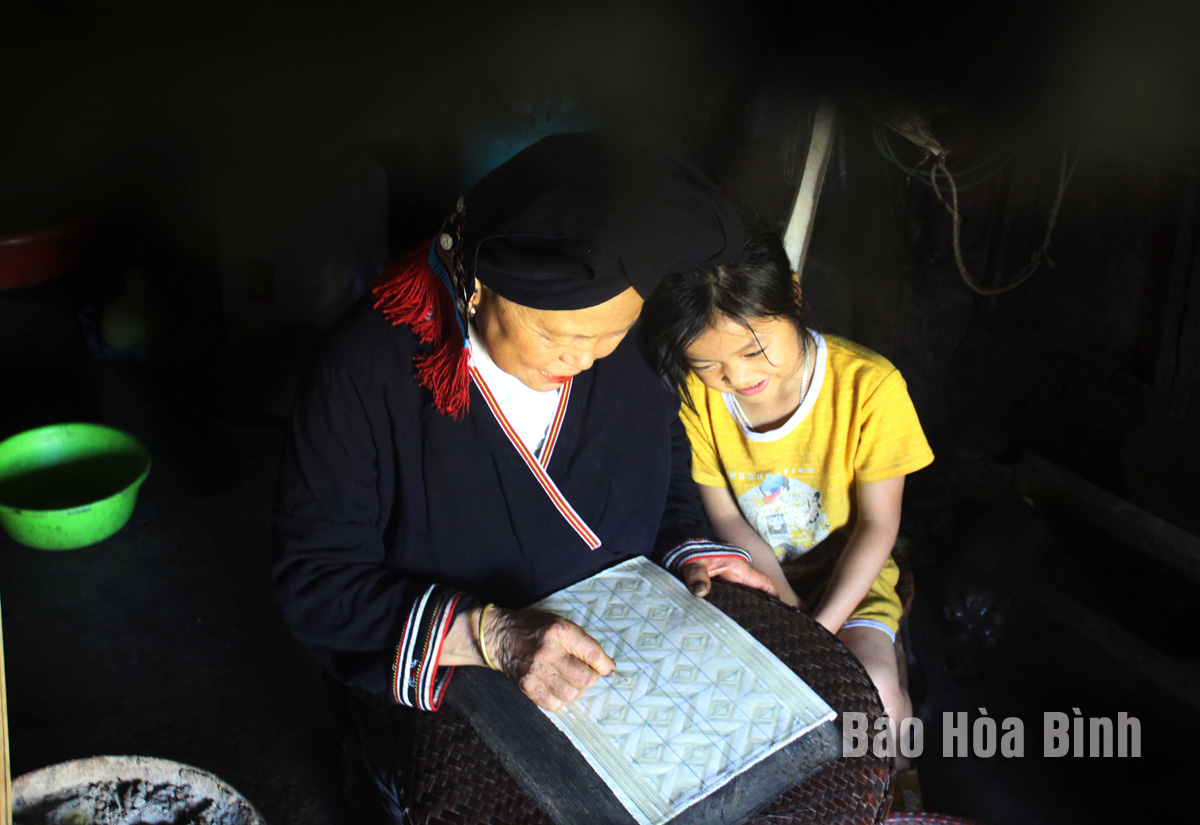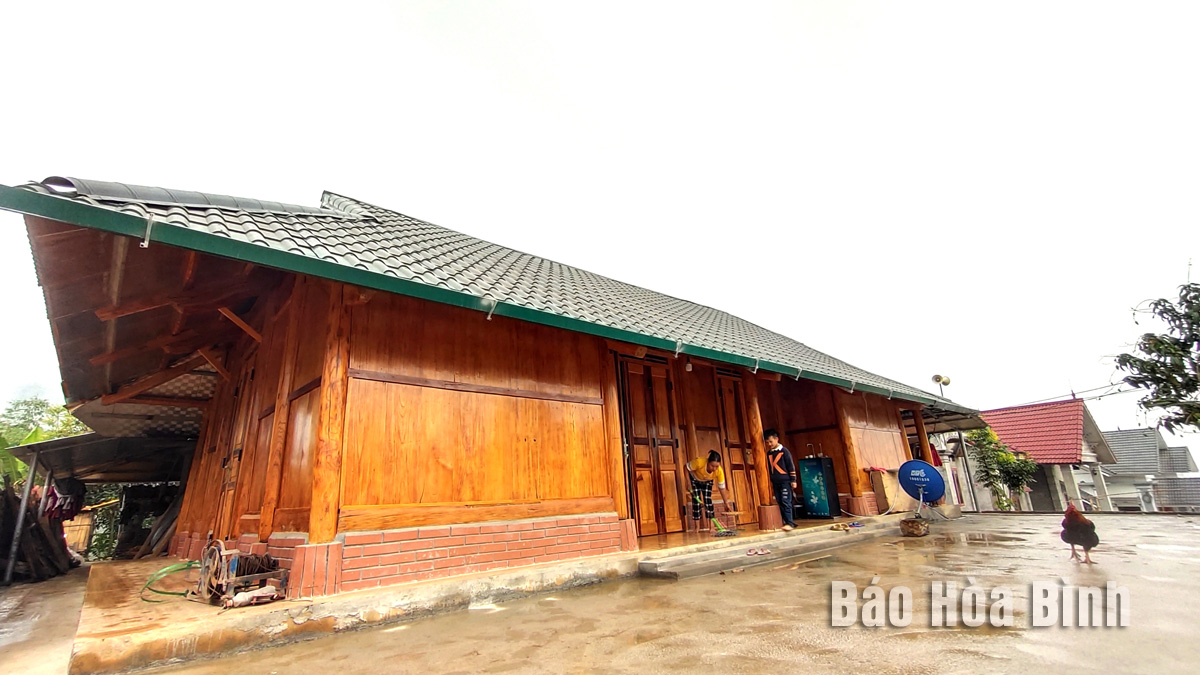



People in Sung hamlet, Cao Son commune (Da Bac) teach their children how to make beeswax painting and brocade weaving.

Dao people in Lau Bai hamlet, Vay Nua commune Da Bac commune, preserve their traditional housing styles.
In Da Bac district, the Dao ethnic community is concentrated in several communes such as Toan Son, Cao Son, Vay Nua, and Tu Ly. Thanks to the attention and investment from the Party and State, the living conditions of the Dao people have improved significantly.
Visiting Lau Bai hamlet, home to over 30 Dao households in Vay Nua commune, one can see a clear transformation in this village. Seven years ago, the Dao village struggled with natural disasters, with the entire hamlet at high risk of landslides, leading to an urgent relocation. After enduring the most difficult times, the life of local residents has been improved with concrete roads and all households have access to the national electricity grid.
Lau Bai hamlet Party Secretary Ly Quang Hoang said that the village has developed forest planting and cage fish farming, which has helped stabilise the local economy. With its location adjacent to the Hoa Binh Lake area, Lau Bai aims to develop tourism. Some households in the hamlet have started cage fish farming in combination with building floating houses to serve tourists.
Although life has stabilised and most families live in solidly built houses, the village is always determined to preserve and promote traditional cultural practices and customs. This is reflected by the way they arrange ancestor altars at home and they wear traditional costumes on important occasions. The fact that the hamlet maintains traditional ceremonies, textile dyeing and weaving, and singing Pao dung is also evidence of this determination.
While Lau Bai is aiming to develop tourism, Sung hamlet in Cao Son commune, home to over 70 Dao households, has long been a bright spot in community-based tourism development of Da Bac district. The preservation of traditional customs and cultural identities has led to the creation of unique tourist products that attract visitors.
According to head of Sung hamlet Ly Van Nghia, in 2017, with the help of the AOP organisation, the villagers started engaging in community-based tourism with advantage lies in its pristine landscapes and well-preserved cultural features. Since tourism development began, the living standards and income of the people have improved remarkably, noting that the village continues to restore traditional cultural practices to attract more tourists.
Traditional crafts such as indigo dyeing, bee wax painting, and brocade weaving have been revived in Sung hamlet, creating unique experiential tourism products for visitors.
Ly Thi Thien from Sung hamlet said that tourists really enjoy experiencing the processes of making traditional costumes. "We are proud to introduce our ethnic culture to domestic and international visitors,” she said, adding that this not only helps preserve our cultural heritage but also develops tourism and provides a more stable income.
The teaching the Nom-Dao, the script of the Dao ethnic group - to younger generations is also being paid by the elders in Sung hamlet. Ly Van Henh, a teacher of Nom-Dao script, stressed that teaching this script helps young people learn about their writing system, understand their ethnic culture, and moral values, thus raising their awareness about preserving the ethnic group's cultural values, providing a foundation for community-based tourism development.
Recently, Da Bac district has supported Sung villagers and other community-based tourism villages with tourism skills. Focus is placed on reviving, preserving, and promoting the traditional cultural values of the ethnic groups because this is a key factor in speeding up tourism, enhancing the income of the Dao and other ethnic groups in the district.
At the end of May, the Hoa Binh Provincial Ethnic Arts Troupe organized a series of performances for residents in Region 2 and Region 3 communes across the province. Bringing art to ethnic communities in remote, isolated, and especially disadvantaged areas has become a meaningful activity. These are not merely artistic performances but also journeys to disseminate cultural values, enrich spiritual life, and contribute to preserving the cultural identity of ethnic minorities.